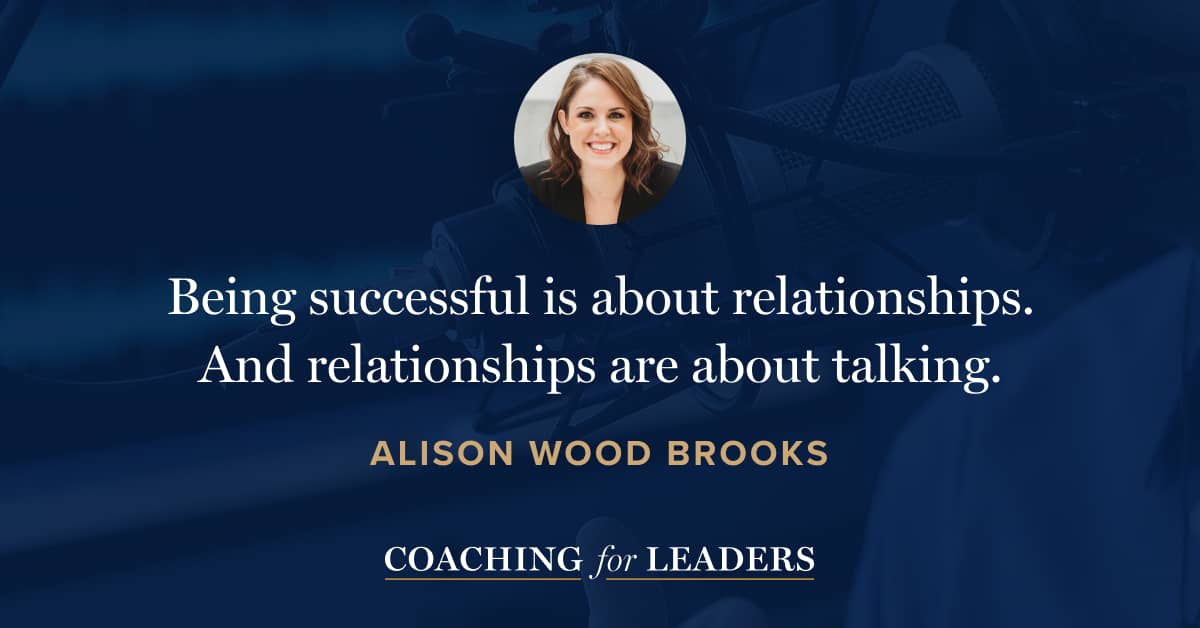Alison Wood Brooks: Talk
Alison Wood Brooks is the O’Brien Associate Professor of Business Administration and Hellman Faculty Fellow at the Harvard Business School, where she created and teaches a course called TALK. As a behavioral scientist, she is a leading expert on the science of conversation and her research was referenced in two of the top ten most-viewed TED talks and depicted in Pixar’s Inside Out 2. She is the author of Talk: The Science of Conversation and the Art of Being Ourselves*.
Conversations are the venues where leaders do so much of their work. We all know someone who always can keep a conversation interesting and relevant. In this episode, Alison and I discuss how a key tactic can help you towards more meaningful conversations.
Key Points
- Healthy relationships are critical for success, and relationships are about talking.
- Good conversation is both instinct and deliberate effort. Preparing topics in advance improves conversation immensely.
- Topics for conversation can be sourced from almost anywhere and help even if we don’t use those topics.
- Good topic management is more important than the right topic. The best conversationalists know when to shift.
- Small talk in an essential exploration ground for getting to bigger, more meaningful conversation.
Resources Mentioned
- Talk: The Science of Conversation and the Art of Being Ourselves* by Alison Wood Brooks
Interview Notes
Download my interview notes in PDF format (free membership required).
Related Episodes
- The Way Into Difficult Conversations, with Kwame Christian (episode 497)
- How to Help Difficult Conversations Go Better, with Sheila Heen (episode 655)
- How to Connect with People Better, with Charles Duhigg (episode 670)
Discover More
Activate your free membership for full access to the entire library of interviews since 2011, searchable by topic. To accelerate your learning, uncover more inside Coaching for Leaders Plus.





